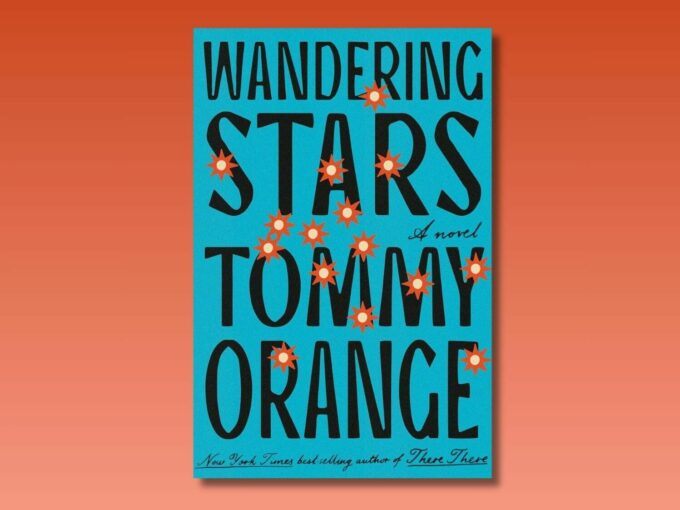An American Genocide: Tommy Orange,
Francine Prose and Leonard Peltier

Cover Art for the book Wandering Stars by Tommy Orange
In a recent review of two novels by Native American author Tommy Orange, Francine Prose comments on what she calls “the land acknowledgment” phrase that is recited at many public meetings from coast-to-coast. In San Francisco, speakers tell audiences that they are all on “unceded land” once home to the Ramaytush Ohlone. In upstate New York Prose explains the Lenape are honored, though no one says what’s become of them. She adds that the land acknowledgment words make her “uneasy” because they’re “like thanking the owners of a house we’ve robbed even though we have no intention of returning the loot. “
The analogy might not work as well as Prose would like, but her heart is with the Indians who called Turtle Island home and who used other names for the territory that was taken from them by force. In her review, Prose poses a relevant question: “now when our conscience and consciousness seem newly awakened to the horrors of mass slaughter perhaps it’s time to ask ourselves: Isn’t there more we can do about the unresolved aftermath of the genocide that our own government committed?”
Readers will probably assume she’s thinking of the genocide in Gaza. Other authors have connected that part of the world with the American west where settler colonialists participated in the theft of Indian land and the slaughter of men, women and children. Along with US soldiers and political leaders, those settlers in the west had blood on their hands.
Like Prose I’ve been uneasy when I’ve heard speakers talk about unceded Ramatush Ohlone land. Why single them out I’ve wondered? What about the Miwok and the Pomo who lived in the Bay Area? I was far less uneasy at a recent event in Berkeley when dozens of Indian tribes and not just the Ohlone were acknowledged. Why not be inclusive I wondered?
As to Prose’s question about doing more to address the “aftermath”of genocide, there is no easy answer. There hasn’t been one for centuries. The genocide is on-going as Tommy Orange’s novels and books, and works by other authors, make clear. The genocide is not behind us. Moreover, consciousness and conscience have been awakened in the past by books like Dee Brown’s Bury My Heart at Wounded Knee (1970) and by events like the occupation of Alcatraz in the late 1960s and early 1970s, the protests at Wounded Knee in the 1970s and more recently at Standing Rock. Leonard Peltier is still in prison for his role at Wounded Knee, and serving two life years. He was found guilty of murdering two FBI agents and was denied parole on 2 July 2024.
It’s not that Indians haven’t resisted and protested. They have fought against colonialists and colonialism ever since the 17th century when New England Puritans slaughtered Indians at places like Mystic, Connecticut, decimated their crops and seized their land. “There is a slaughter,” the Calvinist Roger Williams wrote. “The Pequod are slain,” A Narragansett chief named Miantonomi noted that the English “have gotten our land, with scythes cut down the grasses, and with axes fell the trees; their cows and horses eat the grass, and their gis spoil our clam bank, and we shall all be starved.” Starvation was a key weapon in the war waged against the Narragansett and other tribes. Herman Melville named Captain Ahab’s whaling ship “the Pequod” as a way to acknowledge the once powerful tribe.
One way to address the genocide committed by the US government might be to educate Americans: show that the war against Native Americans hasn’t ended; and that American citizens as well as American officials played a part in the ongoing genocide. Not to shame them but to illuminate the past. Also, to show that while “mass slaughter” is a big part of the story, it isn’t the only part. There are also the daily acts that have aimed to rob Indians of their cultures and identities.
As Tommy Orange’s novels show, Indians sometimes have participated unwittingly in their own colonization. Reading his novels is a valid way to come to terms with the ongoing genocide. If you haven’t read There There (2018) and Wandering Stars (2024) make a vow to do so and open your hearts to the stories that Orange tells with compassion and imagination. More than 60 years ago, JFK noted that Indian “history is our history and should be part of our shared and remembered heritage.” If nothing was done to alter “the treatment of Indians” it would be, he wrote, “marked down for all time as a national disgrace.”
No comments:
Post a Comment